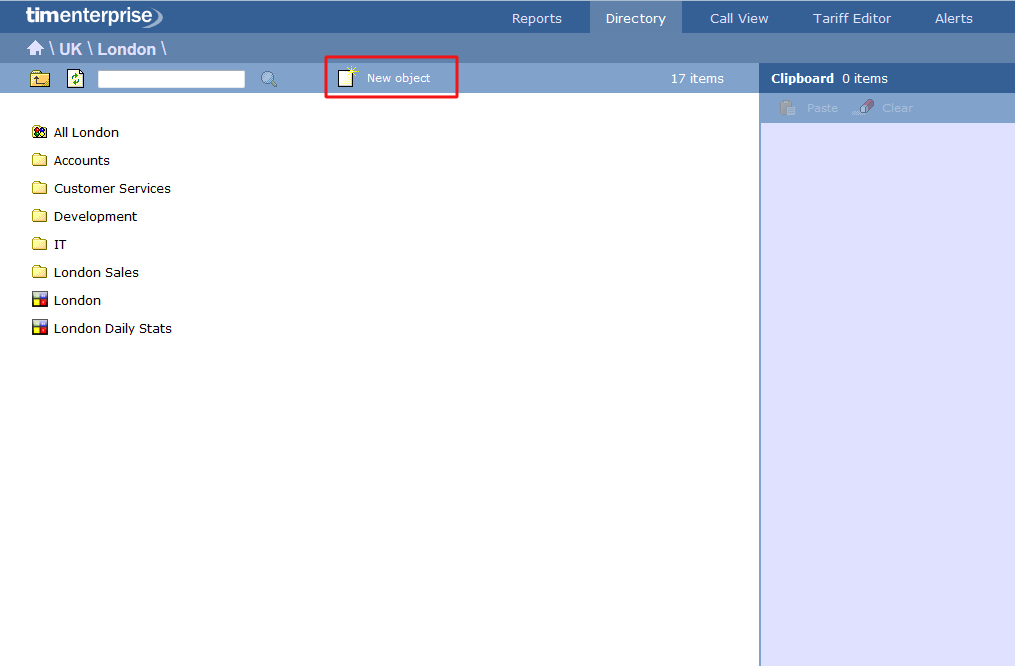Reporting Collection
What is a Reporting Collection
The Reporting Collection object is a special type of group that acts as a virtual container, collating disparate users from across the entire organisation. This allow you to group any number of directory units together, for reporting purposes, with no constrains on the directory structure. For example, you can compare statistics for all Sales teams from across the country, by running a single report on the virtual group.
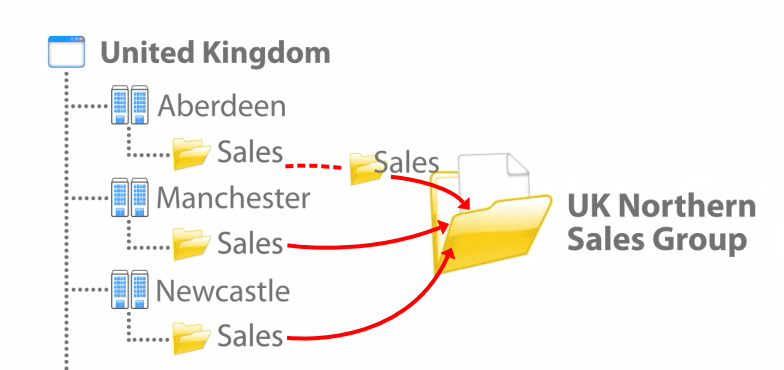
When adding objects to a Reporting Collection, only a copy of the actual entity is being moved into the virtual group. To represent this, the objects in a Reporting Collection group will always show as greyed out.
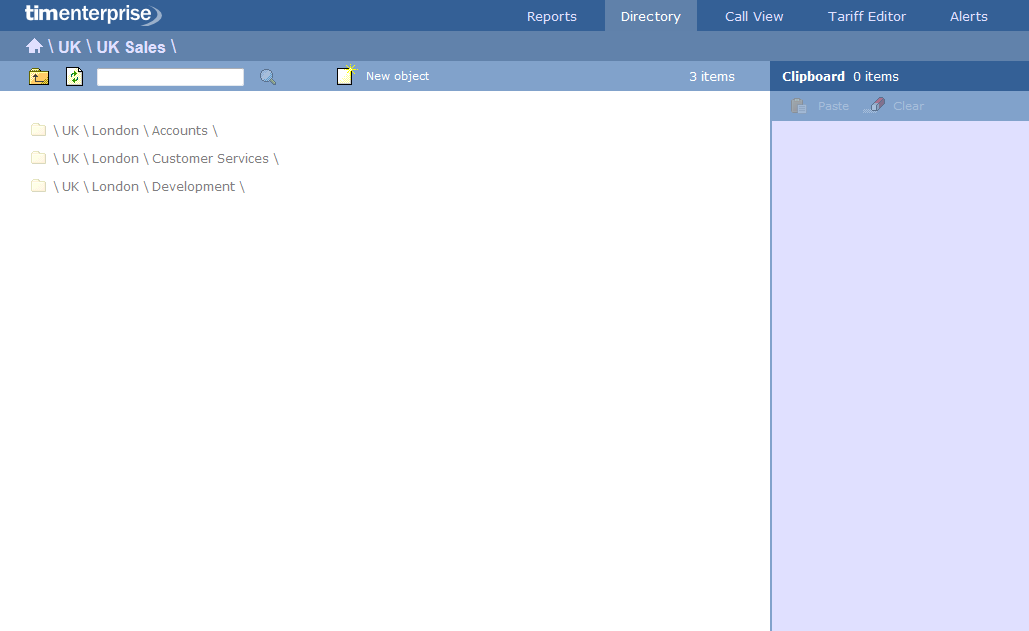
Adding a Reporting Collection
To add a Reporting Collection to the system, drill-down to the Directory level where you want to add the group and click on the New object tab, as shown below:
In the new window that opens, select the Reporting Collection object from the Organisation unit list, enter a relevant name and click on the button, as shown below:
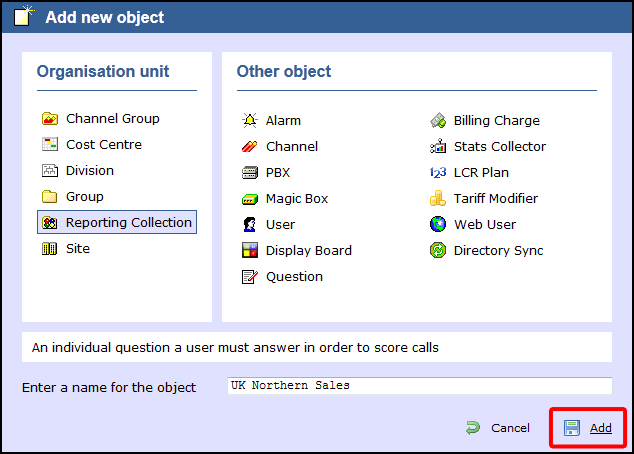
There is no limit to the amount of Reporting Collections you can add to the Directory. |
Adding objects to a Reporting Collection
Follow the steps below to add an object to a Reporting Collection, e.g. sites, groups, users:
- Locate in the Directory the object you want to add to the Reporting Collection, click on it and select Copy from the drop-down list, as shown below:
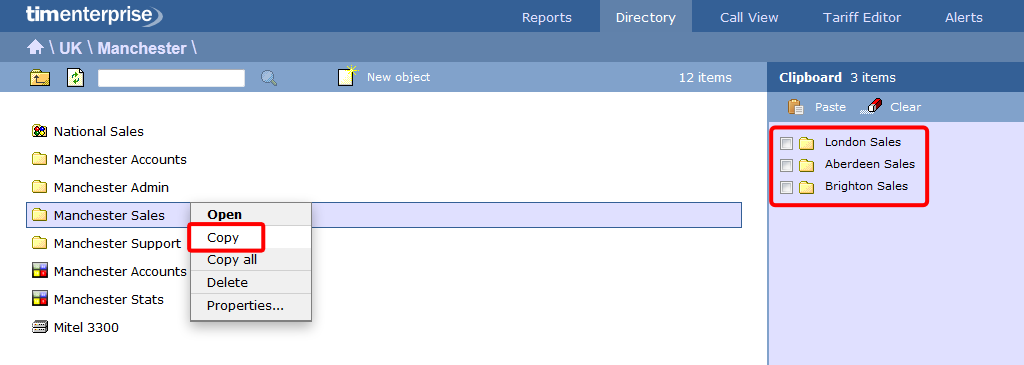
- The object will be copied on the Clipboard panel, on the right-hand side of the screen. To add more directory objects to the Reporting Collection, follow the same procedure.
- To move the objects, open your Reporting Collection group, tick the box alongside the objects you want to move and click on the button at the top-left corner of the Clipboard screen, as shown below:

- A copy of selected objects will now be added to the Reporting Collection group.

These groups are designed for reporting purposes only, therefore the calls will not be duplicated. |
